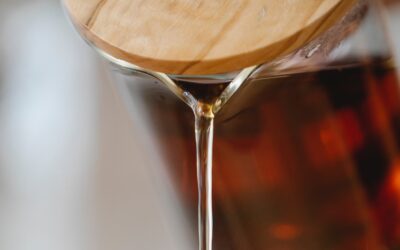
A while ago I read a blog post that really riled me in a way that only something on the internet can. It pressed my buttons because it contained three of my pet peeves: lack of research, muddying opinion and fact, and dismissing the scientific validity of herbal medicine – in this case it was about the usefulness of a class of herbs called adaptogens.
As a Medical Herbalist I take my profession seriously, so you can understand why I get upset when people try to discredit it as fashionable or ‘out there’. But why should you care?
It bothers me, beyond professional pride, because all too often I see herbal medicine written off as kooky or some sort of snake oil, when it is grounded in scientific research. Which means it has been clinically tested and does what it says it will do. And, even better, it works with your body rather than against it. Herbal medicine has the potential to help an awful lot of people, often with fewer contraindications than ‘conventional’ medicine.
So today I wanted to share some information about adaptogens and why they’re important. And hopefully, while we’re at it, bust some myths about what herbal medicine is and isn’t!
Getting beyond the buzzwords
‘Adaptogen’ is not a new buzzword like ‘clean eating’. It was first coined in 1947 by a Russian scientist, Dr Nikolai Lazarev. An adaptogen is defined as a nontoxic substance that increases your body’s resistance against stressors, whether they are physical, chemical or biological. It is also nontoxic to the recipient, even when taken over a longer time period.
Before we go any deeper, it’s a good idea to understand what we mean by stress here, and the body’s response to it, as stress is one of those buzzwords that’s thrown around quite a lot these days!
To understand stress we need to go back to 1936 and the work of Dr Hans Selye, who has come to be known as the father of stress research. As well as coming up with the term ‘stress’ and writing over 39 books on the subject, he also came up with the ‘General Adaptation Syndrome’ (GAS) model of how we respond to stress – a model that is still used in the medical community today.
How do our bodies respond to stress?
According to the GAS model, when people are faced with physical stressors (such as very cold temperatures), psychological stressors (such as relationship breakdown or money worries) or biological or chemical stressors (such as being injected with toxins) it provokes a three-stage process:
· Alarm reaction: this is where your body releases the ‘stress hormones’ adrenaline and cortisol, our muscles tense, blood pressure and blood sugar levels rise and we enter what is commonly known as the ‘flight or fight’ state
· Resistance: in this stage your body tries to restore balance (homeostasis) by countering the physiological responses to stress and trying to adapt to the stressor. At this point, if the stressor goes away, the body returns to normal. However if the stressor continues, your body will continue in a stage of high alert, depleting your energy and resulting in loss of concentration, irritability and tiredness.
· Exhaustion: as the stress continues your body becomes depleted and exhausted. As well as feeling tired, anxious or depressed, high levels of cortisol in your system longer term can result in digestive and circulatory problems, and lowered immunity.
How do adaptogens help?
Now let’s return to adaptogens. Adaptogens are plants capable of helping with our stress responses in all three stages of Selye’s model:
– they can help at the alarm stage by reducing our stress reactions
– they can help at the resistance stage by helping our bodies restore balance,
– they can retard / prevent the exhaustion phase and thus provide a certain degree of protection against long-term stress.
Research published in the respected journal ‘Current Clinical Pharmacology’ (now does that sound like the latest hippy read to you?!) found strong scientific evidence for the use of Rhodiola rosea extract in protecting against stress, combating fatigue, and improving attention, cognitive function and mental performance in fatigue and chronic fatigue syndrome. Good scientific evidence has also been documented in trials in which Schisandra chinensis and Eleutherococcus senticosus increased endurance and mental performance in patients with mild fatigue and weakness. (1) Anti-stress activity has also been documented for Panax Ginseng, Eleutherococcus senticosus, Withania somnifera, and Codonopsis pilosula. (2)
The beneficial stress-protective effect of adaptogens is thought to be related to regulation of homeostasis via several mechanisms of action associated with the hypothalamic-pituitary-adrenal axis and the control of key mediators of stress response. Many adaptogen also possess immunomodulatory and/ or anabolic activities.(2) (3) (4) (5)
This is not the sort of thing to be dismissed as the latest health fad. In the right hands, and with further research, there is the potential for a variety of adaptogens to protect our bodies against long-term stress conditions.
There are no ‘quick fixes’
It is important to note adaptogens should not be used in place of proper self-care, nourishing food, adequate rest or a much needed change in environment or way of being. They are not meant to be used as a ‘pep-pill’ to keep us going when our body is telling us to slow down and recuperate. A good herbalist will advise their use alongside other supportive and fortifying herbs, good nutrition and lifestyle changes. We will often sign-post to supportive talking therapies. An analogy I often use is if you have a car that is struggling after running low on water and oil after a long road trip across the desert ,filling up with high performance petrol and hitting the accelerator without attending to the other requirements is not a sensible approach! Medical Herbalists take a holistic approach, addressing the cause and not just the symptoms. Herbal adaptogens are just part of our toolkit to build up strength after a long illness, during recovery from a chronic disease or as a long term measure to supplement and nourish an individual who is very sensitive to stress and environmental factors.
The main point I’d like you to take away from this blog, is that use of any medicine – herbal, holistic, traditional or otherwise, needs research. Medical Herbalists are not simply brewing up mystery concoctions from the garden! Our work is rooted in clinical studies, and we take the time to do our own research for every single client to ensure any prescriptions are optimal for you.
If you’d like a personal consultation, I have some slots available over the next month. Contact me to get booked in.
References:
(1) Evidence-Based Efficiency of Adaptogens in Fatigue, and Molecular Mechanisms Related to their Stress-Protective Activity Panossian, Alexander, Wikman and Georg (Sept 2009) Current Clinical Pharmacology Vol 4 No.3 Pages 198-219
(2) Plant Adaptogens H Wagner, H Norr and W Winterhoff (June 1994) Phytomedicine Vol 1, Issue 1, Pages 63-76
(3) Adaptogens exert a stress-protective effect by modulation of expression of molecular chaperones Panossian, Wilkman, Alexander and Asea Phytomedicine Volume 16, Issues 6-7 Pages 617-622
(4) Effects of Adaptogens on the Central Nervous System and the Molecular Mechanisms Associated with Their Stress—Protective Activity Panossian and Wilkman (2010) Pharmaceuticals Volume 3, Issue 1
(5) A current status of adaptogens: natural remedy to stress Pawar Vinod and Hugar Shivakumar (2012) Asian Pacific Journal of Tropical Disease S480-S490



0 Comments